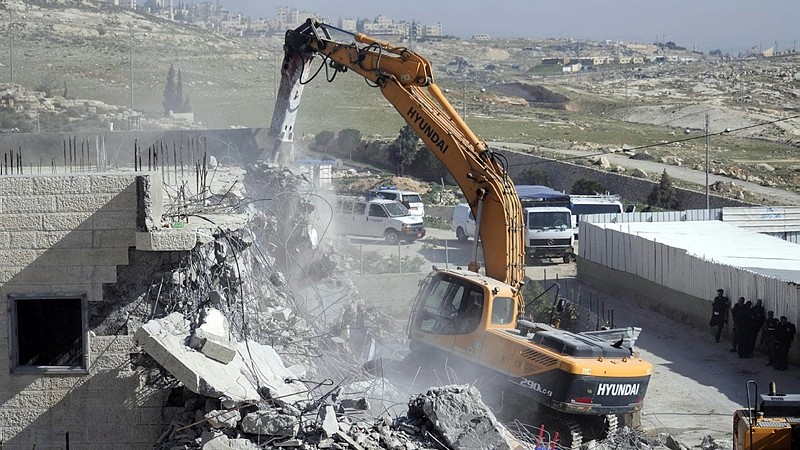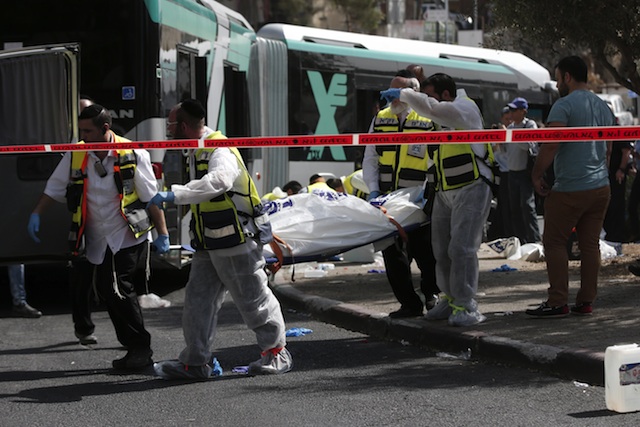Israel has suffered from various threats from the first few hours of its existence, and those threats still continue today. At first the Jewish State was under threat from invading Arab armies seeking to militarily destroy it, and now it is faced with Palestinian terrorism from within. In response to the recent wave of terror, under much international criticism, Israel has re-introduced its policy of punitively demolishing the homes of terrorists and their families.
The punitive housing demolition policy permits the IDF to demolish houses that were home to Palestinians suspected or convicted of involvement in terrorism against Israelis. These acts include suicide bombings, shootings, stabbings, as well as thwarted attacks against soldiers or civilians. The demolished houses belong not only to the terrorists, but also to suspects accused of involvement in an attack, such as planning, dispatching the terrorists, or assisting the responsible terror cell. The policy has received strong criticism in both the international press and on college campuses, with some claiming it violates international law.

Israel has suffered from a wave of terror since September 2015, with 49 people being killed and 731 being injured in deliberate acts of violence aimed at killing Jews. These attacks have been in the form of 177 stabbing attacks, 117 attempted stabbings, 144 shootings, 58 vehicular (ramming) attacks; and one vehicular (bus) bombing. Israel, like every other state under threat, must protect its citizens, and the punitive house demolition policy has shown to be an effective way of doing so. An independent study of Israeli punitive home demolitions found that the demolitions led to a significant decrease in terror attacks of between 11.7% and 14.9%. Moreover, since the re-introduction of house demolitions, terror in Israel has significantly decreased, with the first half of 2017 marking the lowest number of terror attacks since early 2015. Therefore, to criticize the Israeli government for protecting its citizens and clearly saving lives is ludicrous and morally wrong.

Contrary to claims made by Israel’s critics, the policy is legal under international law, with the Geneva Convention requiring an occupying army to keep in place the laws of the previous recognized governor, in this case the British Mandate.
Punitive home demolitions act as a strong counter to the benefits given out by the Palestinian Authority to convicted terrorists and their families. The Palestinian Authority incites violence against Israelis by paying convicted terrorists and their family a monthly salary, with the more Israelis killed, the higher the salary. The financial hardship burdened by the families of terrorists is arguably outweighs to the financial benefits of conducting an attack, thus at least partially removing the incentive to carry out terror attacks from the Palestinian Authority.
Further justification for the demolition policy can be found in that it focuses on the terrorist’s family’s complicity. Many relatives of future terrorists often encourage, help supply, or fail to report planned acts of terrorism to the relevant authorities. The re-implementation of house demolitions acts as a strong deterrent, not necessarily to the terrorist themselves, but to their family, who will know if they do not report their relatives to the authorities, will face losing their homes.
All governments, including the Israeli government, have a responsibility to protect their citizens from all threats, such as terrorism. And despite all the criticism surrounding Israel’s re-implementation of punitive housing demolitions, studies show that it clearly works as a strong deterrent to terrorists and their families, saving many innocent lives. To demand of Israel to stop its demolition of terrorist’s houses, is to demand the Israeli government fail to do all it can to stop the murdering of its citizens, and no government would, or should accept that.
Contributed by Daniel Kosky, CAMERA Intern

